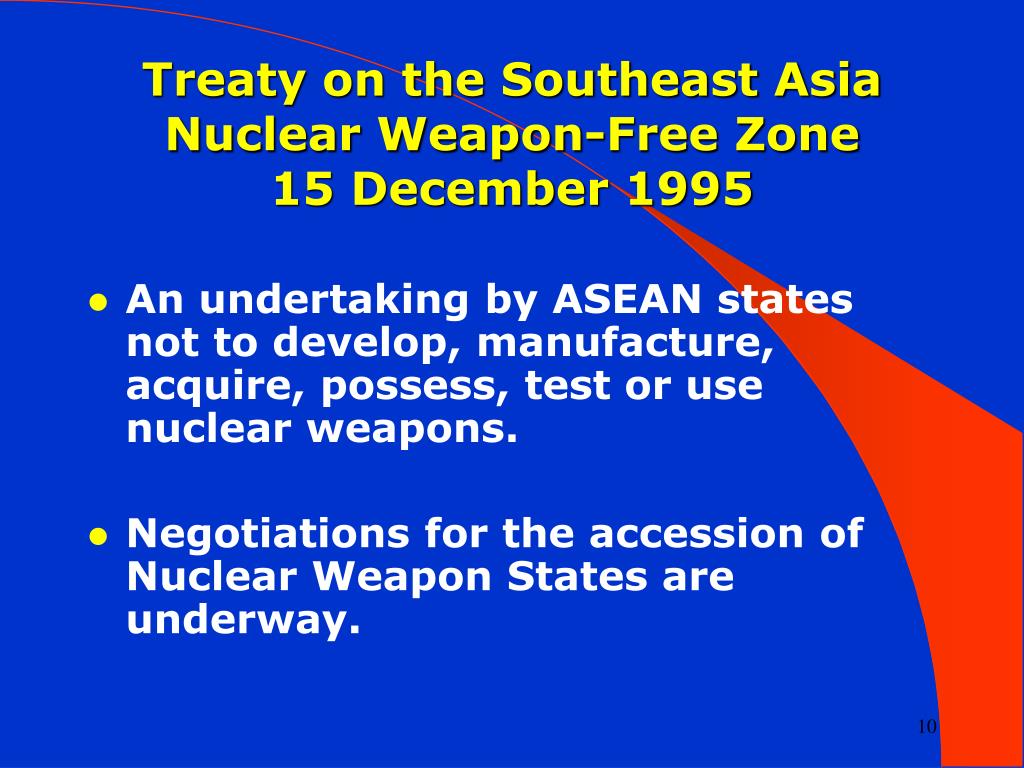
China Backs Nuclear Weapon-free Zone in Southeast Asia in Move to ‘Contain AUKUS’
Amber Wang / South China Morning Post
BEIJING (November 2021) — President Xi Jinping told Asean leaders that Beijing is willing to sign protocol to the treaty ‘as early as possible.’ It has indicated it will do so for more than two decades, and observers say the security alliance could speed up the process
China has voiced support for a nuclear weapon-free zone in Southeast Asia as it seeks to strengthen regional alliances, pushed by concerns over the new Aukus security pact, according to observers.
While Beijing has yet to sign the protocol to the Asean treaty to keep nuclear weapons out of the region – despite indicating a willingness to do so for more than two decades – pressure from the new partnership between Australia, the UK and the US could speed up the process, they said.
President Xi Jinping told Association of Southeast Asian Nations leaders on Monday that China backed efforts to build a nuclear weapon-free zone and was willing to sign the protocol to the treaty “as early as possible”.
Xi Says China Is Ready to Sign
ASEAN’s Nuclear Arms-free-zone Treaty

JAKARTA (November 22, 2021) — Chinese leader Xi Jinping said Monday that Beijing was ready to sign a Southeast Asia nuclear weapon-free treaty, in an apparent response to the new AUKUS defense pact between Australia, the UK and the US.
This apparent response to the AUKUS pact is likely to turn up heat on Australia. Chinese submarines, including a nuclear-powered Type 094A Jin-class ballistic missile vessel, were seen during a military display in the South China Sea in 2018.
China Pushes for Nuclear-weapon-free Southeast Asia

President Xi’s remarks come as US, UK
arm Australia with nuclear-capable submarines
Riyaz ul Khaliq / Anadolu Agency
ISTANBUL (November 22, 2021) — China on Monday said it is ready to work with the members of the Association of Southeast Asian Nations (ASEAN) towards a nuclear weapon-free region besides ensuring stability in the disputed South China Sea.
“China supports ASEAN’s efforts to build a nuclear weapon-free zone, and is prepared to sign the Protocol to the Treaty on the Southeast Asia Nuclear Weapon-Free Zone as early as possible,” President Xi Jinping told the China-Asia summit marking 30 years of the relations between two sides.
Beijing’s demand for a nuclear-free Southeast Asia comes as the US and UK empower their ally Australia with nuclear-armed submarines under a deal called AUKUS signed in September.
Xi also announced the establishment of China-ASEAN Comprehensive Strategic Partnership during his speech for “a new milestone” in the history of their relations.
“Maintaining peace is our greatest common interest and the most cherished aspiration of people of all countries,” he said, urging taking a course of “dialogue instead of confrontation.”
Reiterating Beijing’s long-held focus on “practicing true multilateralism,” Xi said: “China firmly opposes hegemonic and power politics. China pursues long-term, friendly coexistence with neighboring countries, and is part of the common efforts for durable peace in the region. China will never seek hegemony, still less bully smaller countries.”
While Xi announced to jointly work with the ASEAN to build a “health shield” for the region, he urged the 10-member grouping to “pursue common, comprehensive, cooperative, and sustainable security.” The president also called for deepening cooperation in various areas such as defense, counter-terrorism, joint maritime search, countering transnational crime, rescue and exercise, and disaster management.
“Joint efforts are needed to safeguard stability in the South China Sea and make it a sea of peace, friendship, and cooperation,” he said.
China will donate an additional 150 million doses of COVID-19 vaccines to ASEAN countries, Xi said, while Beijing will contribute an additional $5 million to the COVID-19 ASEAN Response Fund, step up vaccine joint production and technology transfer, and collaborate on research and development of essential medicines.
The bilateral trade between China and ASEAN has skyrocketed by 85 times to $684.6 billion in 2020 from less than $8 billion in 1991, making the two sides each other’s largest trading partners.
Posted in accordance with Title 17, Section 107, US Code, for noncommercial, educational purposes.